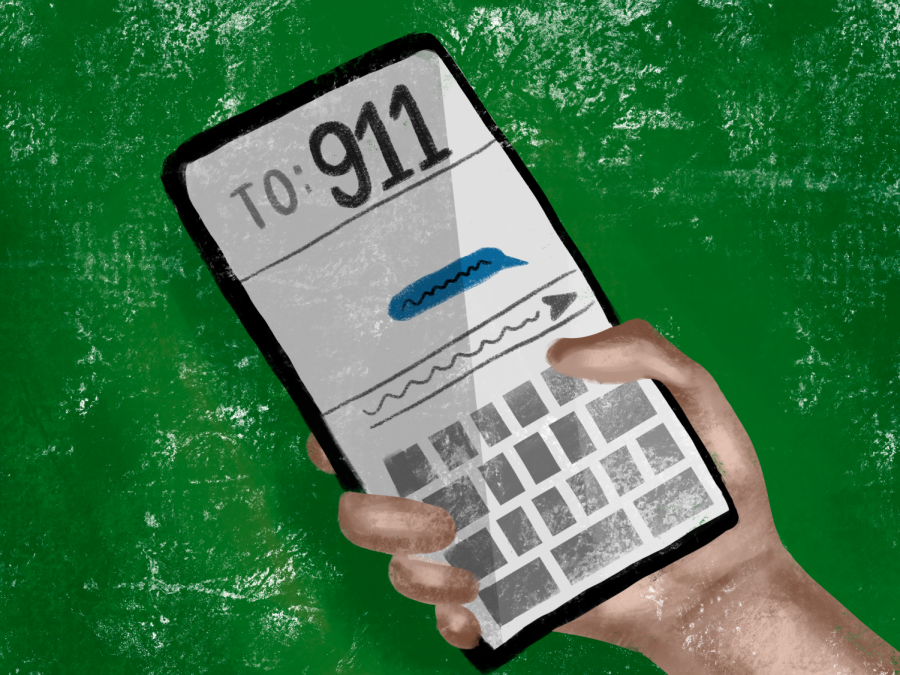Though traditional combat positions may come to mind when one thinks about the military, there is actually a variety of options available for interested students to explore. Depending on what choices students make, they can enlist after high school or college, and have the option to become officers, work full-time or join the reserves, be the boots on the ground or be doctors, or fulfill a variety of other roles.
Recruiters visit many school campuses to make themselves accessible to students, but interested students usually contact recruiters themselves.
“We are here to simply tell them, ‘This is the army, and this is what the army has to offer,’” said Staff Sergeant Ratish Joshi, an army recruiter who visits many schools in the Bay Area, including Los Altos.
Meeting with a recruiter is also an opportunity for students to ask questions about the military to find out if the option is for them, as most recruiters have previously had different positions in the military. According to Joshi, students usually ask about guns, Iraq, Afghanistan and whether the recruiters have killed people in action. However, he feels that these are the wrong questions to ask.
“What I would like for them to do is to come up and ask us, ‘This is where I want to go with my career, how can the army help me get there?’” Joshi said.
Though traditional combat positions such as the infantry, or the “boots on the ground,” are a part of the military, a wide range of other jobs are required. They need doctors, lawyers, logisticians, transport, engineers and computer scientists, among many other professions.
Despite the variety in professions, a uniting quality in the military is the emphasis on trust and teamwork. Though Joshi and Staff Sergeant Victor Boichan are looking for these qualities in recruits, they say that they do not actively try to dissuade anyone from joining the military, even those who don’t seem to be a good fit. In their experience they say the preliminary training, Basic Training, teaches new recruits to fit what is needed for the military service through both physical and mental training.
Recruiters try to emphasize the possible opportunities available by enlisting. The military is a viable option for students looking for a way to pay for college. In exchange for years of service after college, the military helps pay tuition for students in the Reserve Officer Training Corps or at military schools, in some instances paying everything, as part of the G.I. bill.
“All these kids expect to go to college, get a degree, finish their degree and get a good job,” Boichan said. “But the reality of it is, how many college students finish with a degree each year? Thousands and thousands. And how many actually get a job?”
The recruiters feel that the opportunities offered by the military are often overlooked by students.
“I would say, stop looking at the army as a backup plan and start looking at it as a stepping stone to get to where you want to be,” Joshi said.
However, not everyone believes that military recruitment should be encouraged among high school students. Recruitment, especially on public school campuses, continues to be controversial. Many parents and students do not like members of the military trying to persuade students to join in a school setting, and the presence of military recruiters can be especially upsetting to those who have been negatively affected or know those who have been negatively affected by the actions of the US military.
In addition to the negative effects experienced by students and families, schools hosting military recruiters have had issues in the past. The controversy stems mainly from teachers, arguing that students should not be subject to persuasive techniques by the recruiters. Instead, students willing to enlist in the military should approach it on their own time, outside of school, to ensure that it is the student’s personal choice. However, others argue that military recruitment should be available to students so that students can learn about the options the military offers for education, especially if those students might not otherwise be able to attend college.
For students, deciding to join the military is a big decision. Talking to recruiters and doing additional research can help students in making this decision about their futures.














